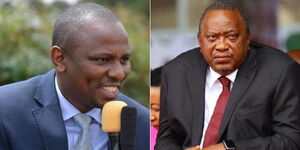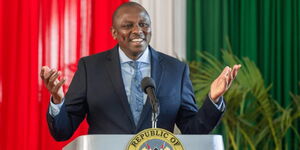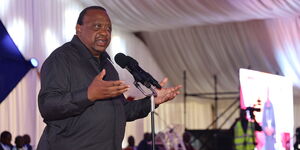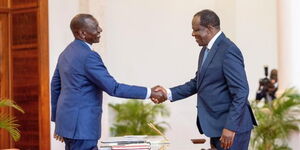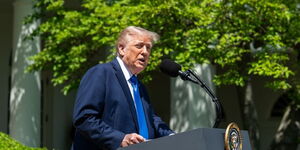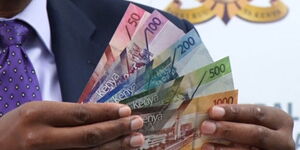A Kenyan man on Friday received orders from the High Court directing Parliament to respond to a petition filed in the courts seeking to have Parliament remove carvings located at the entrance of the National Assembly and on the Speaker’s seats which he claims promote idol worship and cultic beliefs.
The Kenyan, John Mweha Kariuki in his petition, wants the High Court to issue interim orders for the immediate removal of the carvings which he insists undermine national values and are an affront to the religious diversity enjoyed by Kenyans.
''The presence of the carvings in question undermines the national values of inclusivity, respect for religious diversity, and integrity. These symbols are perceived by many Kenyans as promoting idolatrous or occult beliefs, which contradict the constitutional principle of religious pluralism and public trust,’’ reads part of his petition.
Kariuki claims that the symbols force many people visiting Parliament to interact and show respect to the carvings, contrary to their faiths.
''The display of symbols that suggest idolatry or occult practices infringes on the religious freedoms guaranteed under Article 32. Members of parliament, visitors, staff, and members of the public who adhere to different faiths are compelled to interact with these symbols, which may be offensive to their religious convictions, especially among Christian, Muslim, and other religious communities in Kenya,’’ Kariuki added in his petition.
In his prayers to the court, Kariuki asked the Presiding Judge on the matter, Justice Chacha Mwita to issue orders, directing the Parliamentary Service Commission(PSC) to issue a detailed explanation of the symbolic meanings of the carvings in question.
He also appealed to Mwita to declare this to be a violation of the constitutional provisions.
''An order compelling the Parliamentary Service Commission to provide an explanation regarding the installation and symbolic meaning of the carvings. An order directing the immediate removal of the carvings from the National Assembly and the Senate,’’ he added.
In his response, Justice Mwita ordered that the respondents mentioned in the case, the Attorney General and the Speakers of the National Assembly and Parliament be served with the petition and respond accordingly to the issues raised.
He also directed that failure to respond to the issues raised by Kariuki will attract consequences according to the provisions of the law. The case will be heard on January 29 next year.
This is not the first time that Kariuki is petitioning the courts over such matters. In September this year, he filed a case at the High Court seeking removal of the ‘Naked Boy’ statue at the Supreme Court.
''The naked depiction of a young boy is culturally demeaning, insensitive, and offensive. It does not reflect the values of respect and dignity that are integral to Kenyan society, as enshrined in Article 10 of the Constitution, which emphasises national values and principles of governance, including human dignity, equity, and social justice,” his petition read in part.

